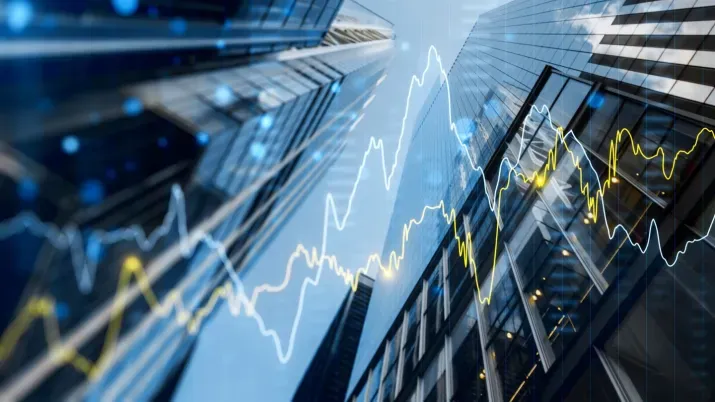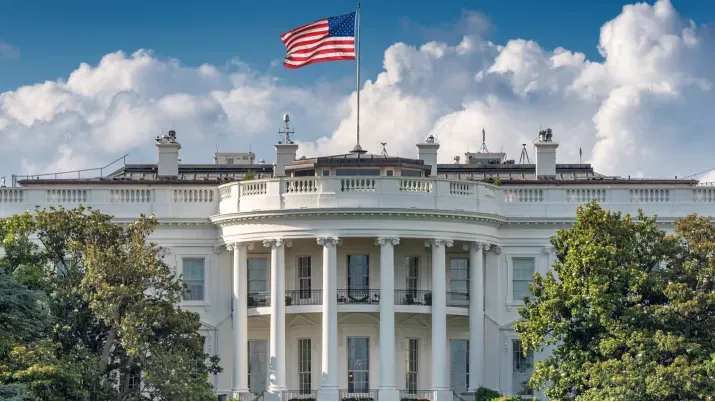Debt brake putting the brakes on Germany’s economy
The collapse of Germany’s ruling coalition just after the US election has left the Eurozone’s largest economy in political limbo at a difficult time.
The German economy has been stagnant for a number of quarters now, with quarter-on-quarter growth averaging just 0.14% since 2021. The new normal of higher energy prices means parts of the economy have lost competitiveness in international markets, and Donald Trump’s re-election has increased the odds of some sort of trade war which would hurt open economies such as Germany’s the most.
The cause of the row between the coalition partners was fiscal spending and the so-called “debt brake”, which prevents the federal government from structurally increasing debt beyond 0.35% of GDP in a given year. The debt brake was reimposed this year having been suspended since 2020 due to the Covid-19 pandemic and the energy crisis sparked by Russia’s invasion of Ukraine. Chancellor Olaf Scholz’s draft 2025 budget proposed a further suspension in order to address Germany’s economic stagnation, the ongoing impact of higher energy prices and the possibility of reduced US financial aid to Ukraine. Scholz’s then-finance minister Christian Lindner refused the suspension, prompting Scholz to sack him, which ultimately led to Lindner’s party breaking away from the coalition. Some clarity has begun to emerge in recent days, with the most likely scenario being an early general election in late February.
Germany has ample space to increase its government debt levels. At 63% of GDP, the debt burden is the second lowest in the G7 with all ratings at AAA on stable outlook. The budget deficit for this year is projected to be 2.5% of GDP, which is also among the lowest in the G7. Moreover, Germany runs a substantial current account surplus in excess of 6% of GDP. This means that not only are the net savings of German households and companies enough to fund the small government deficit, but they are also lending a large amount of money to the rest of world. With Germany having run a current account surplus for decades, the country has a €3.2tr net international investment position (NIIP); in other words, German residents have net claims on the rest of the world worth €3.2tr (for comparison, the US’s NIIP is negative $22.5tr and the UK’s is negative £650bn). We agree with Chancellor Scholz that after two years of stagnation and a rock-solid fiscal position, it makes little sense for Germans to keep accumulating fiscal responsibility trophies at this juncture.
While some recent headlines have suggested the collapse of the coalition might result in a complete change of stance when it comes to budget deficits and the debt brake, the reality is that these will be difficult to change. Modifications to the debt brake rules require a two-thirds majority in Germany’s lower house, the Bundestag. The government is technically now a minority one, and the political landscape is fragmented. Some parties might be tempted to support a suspension of the debt brake but are not keen on increasing aid for Ukraine or increase military spending, for example. In addition, the leader in the polls is the CDU/CSU, an alliance between former Chancellor Angela Merkel’s CDU party and the Bavaria based CSU. These parties have shown some openness to reforming the debt brake, but transformational changes do not seem to be top of the agenda. CDU leader and frontrunner Friedrich Merz said last week that changes could be implemented if the extra money was directed to investment, but he ruled out increases in welfare or current expenditure.
When the news of the coalition collapse broke last week there was a mini sell-off in German Bund yields, largely due to the prospect of greater supply in the event of any relaxation of the debt brake. Germany can and should increase government spending and investment, but the chances are a new government won’t be pulling up any trees when it comes to changing the debt rules, with only marginal changes expected if any. Therefore, we don’t expect to see sustained upward pressure on Bund yields. For now, it looks like the German economy is on its own and while there have been some small positives in the economic data in recent months, it seems like an uphill battle for any upside to the Bloomberg consensus of 0.7% growth for 2025 to materialise.




